Reading for the Hugo Awards: The Ballot Is In
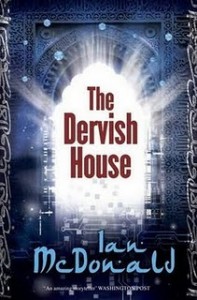 Yesterday, Sunday 31 July was the final day for voting in the Hugo Awards—and in fact in the US the ballot is probably still open as Eastern Standard Time is 16 hours behind NZ time at present. But nonetheless, as far as my ballot is concerned, the die is cast: I completed it on Sunday 31, NZ time.
Yesterday, Sunday 31 July was the final day for voting in the Hugo Awards—and in fact in the US the ballot is probably still open as Eastern Standard Time is 16 hours behind NZ time at present. But nonetheless, as far as my ballot is concerned, the die is cast: I completed it on Sunday 31, NZ time.
In the end I did manage to read all the fiction finalists, although I had my doubts as to whether I would ‘get there’ on July 1 when I was facing six novels, five novellas and novelettes, and four short stories—that’s a grand total of twenty works of fiction, three less than last year. But still, a not inconsiderable task when you have just a month to read and form an opinion on them all.
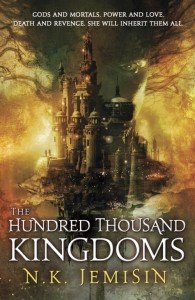 And I do feel that it is very important to read them all if I am going to vote, so that I am giving every finalist a fair go. I consider that this is particularly important as the Hugo Award selection process is both reader/fan-based and is also considered to be one of the pre-eminent awards for speculative fiction in the world. So I believe it is important to read every finalist with as open a mind as possible to determine—by my lights—which of the final works in each category merits that accolade.
And I do feel that it is very important to read them all if I am going to vote, so that I am giving every finalist a fair go. I consider that this is particularly important as the Hugo Award selection process is both reader/fan-based and is also considered to be one of the pre-eminent awards for speculative fiction in the world. So I believe it is important to read every finalist with as open a mind as possible to determine—by my lights—which of the final works in each category merits that accolade.
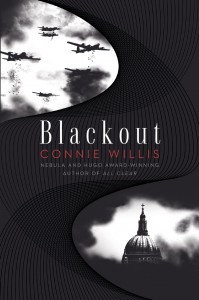
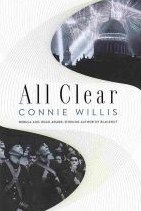 The second step, following reading the works, is always to evaluate and then rank them, quite often making fine distinctions between a number of very good stories. So although the first step in evaluation may be to say, “do I like this story?” the last question is quite likely to be: “which story do I like the most?” A tough call, but also a very subjective one—and very individual.
The second step, following reading the works, is always to evaluate and then rank them, quite often making fine distinctions between a number of very good stories. So although the first step in evaluation may be to say, “do I like this story?” the last question is quite likely to be: “which story do I like the most?” A tough call, but also a very subjective one—and very individual.
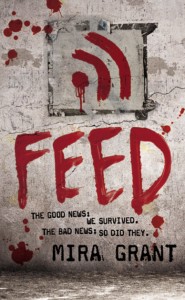 That is why, when doing my reports here one each of the five finalists for Best Novel—remembering that one of those finalists actually comprised two novels, Blackout and All Clear—I was careful to set out my evalation criteria before I started, so I could be consistent in my approach to each work. I used the same criteria in relation to the other fiction categories as well, and just to remind you, these ‘rules of thumb’ I followed throughout were:
That is why, when doing my reports here one each of the five finalists for Best Novel—remembering that one of those finalists actually comprised two novels, Blackout and All Clear—I was careful to set out my evalation criteria before I started, so I could be consistent in my approach to each work. I used the same criteria in relation to the other fiction categories as well, and just to remind you, these ‘rules of thumb’ I followed throughout were:
- the use of genre elements in the work, i.e. its strength as a work of speculative fiction;
- whether the book works for me as a story, i.e. is it compelling, well written and engaging, with particular regard to the emotional depth to the story telling and interesting ideas (although not necessarily for their own sake.) Consistency of both characters and plot is really important to me. And I do rate good use of humour in the story.
- I also appreciate a good ‘twist in the tale’, although I don’t actively require it to enjoy a book—good characters and a good tale well told are my baseline.
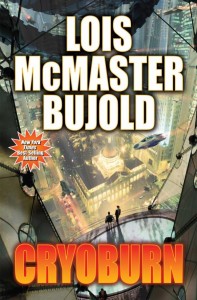 In going to the final step of ranking the finalists on the ballot paper (the Hugo Awards use a transferable voting system), I also came back to a comment I made in relation to the book report on Cryoburn: that this is meant to be an award for the very best speculative fiction novel (or short story, novelette, or novella) published in the world in 2010. To me, that means I must be putting my “1” against the novel that for me is the strongest combination of excellence in the use of speculative elements and simply being a compelling read.
In going to the final step of ranking the finalists on the ballot paper (the Hugo Awards use a transferable voting system), I also came back to a comment I made in relation to the book report on Cryoburn: that this is meant to be an award for the very best speculative fiction novel (or short story, novelette, or novella) published in the world in 2010. To me, that means I must be putting my “1” against the novel that for me is the strongest combination of excellence in the use of speculative elements and simply being a compelling read.
When I thought about it in those terms, the ranking of the novels—which is the category I spent most time and attention on here on the blog—on the ballot paper fell into place fairly quickly. Something that I hope comes through in the reports (which I will list in full at the end) is that I liked all the books. But I felt some were definitely stronger in terms of their use of the speculative genre, while with others I had more quibbles around how the book worked for me in terms of the storytelling. I am not going to give you my complete listing, but (as also happened last year with China Mieville’s The City & The City and Paolo Bacigalupi’s The Windup Girl), the final decision around the No. 1 spot on my ballot paper came down to two books: Ian McDonald’s The Dervish House and NK Jemisin’s The Hundred Thousand Kingdoms.
This is the point at which it all gets really tough—and basically comes down to the sort of story and SFF one enjoys the most, ie personal preference. I enjoyed both The Dervish House and The Hundred Thousand Kingdoms but in the end McDonald’s mix of nanopunk scifi and magic realism spoke to me more deeply as a reader—and I really loved his characters.
So there it is: my ballot had been cast and now all that remains is to see whether I am in or out of synch with the majority of my fellow SFF readers and Hugo voters. The awards will be announced Saturday, August 20th, 2011, during the Hugo Awards Ceremony at Renovation, this years World Science Fiction Convention in Reno, to be held over Wednesday 17—Sunday 21 August. So not many sleeps now to find out that final result!
—
The full list of my reports on my reading of the Hugo Award finalists for Best Novel is as follows:
- Blackout/All Clear by Connie Willis (Ballantine Spectra; Allen & Unwin here in AU/NZ) — my report is posted here.
- Cryoburn by Lois McMaster Bujold (Baen) – you can read my report here
- The Dervish House by Ian McDonald (Gollancz; Pyr) – again, you can read my report here
- Feed by Mira Grant (Orbit) – my report is here
- The Hundred Thousand Kingdoms by N.K. Jemisin (Orbit) – my report is here








While the Connie Willis one is fine, the links back to your other reports don’t seem to be working for me.
I shall see if I can refresh them. Otherwise all the reports should show up under both the “Awards” and “What I’m Reading” Categories in the far right hand side bar.